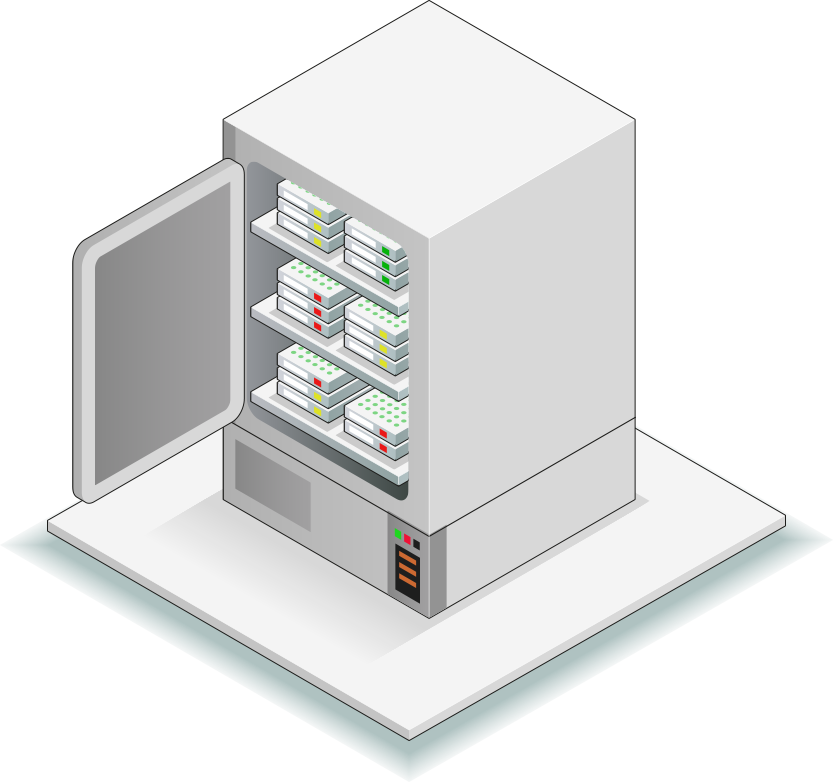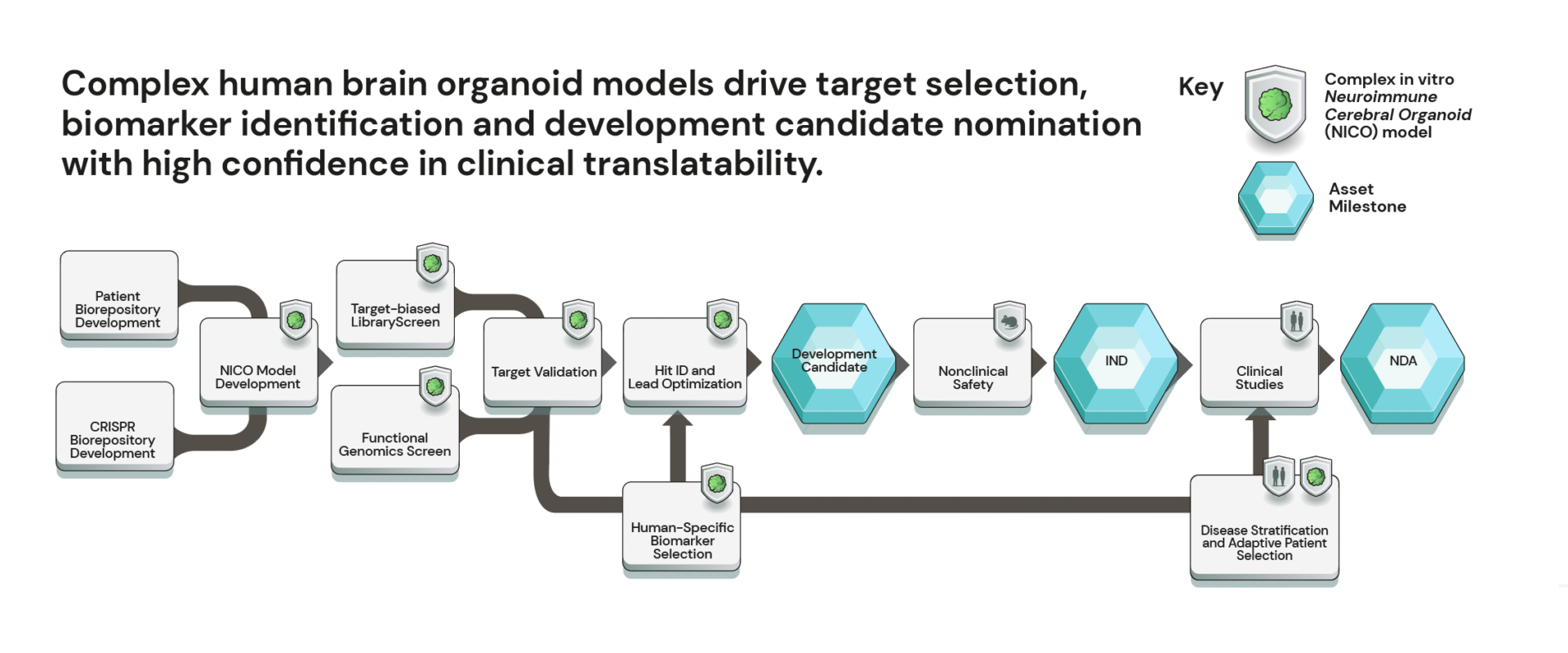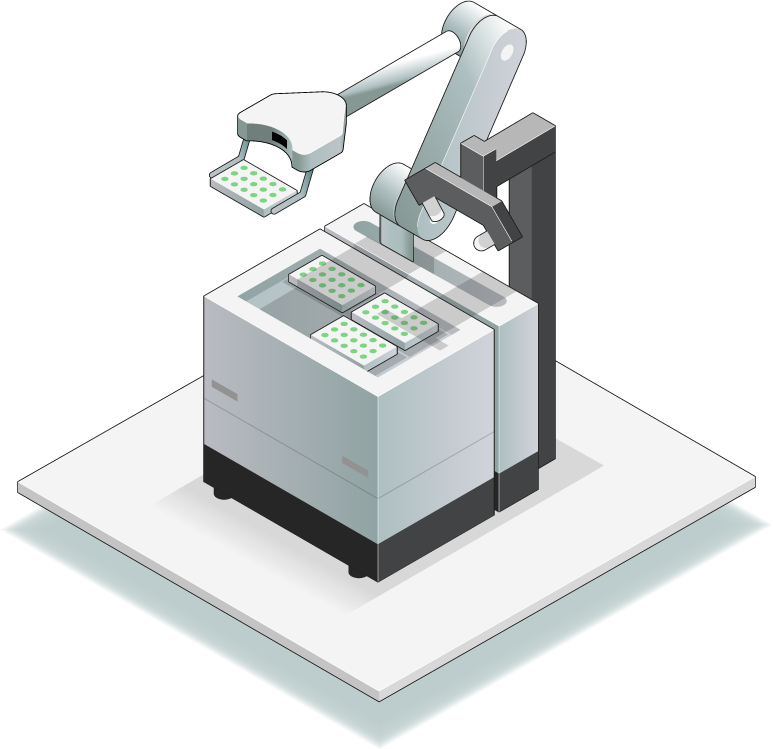
Human models of brain disease.
We use patient stem cell-derived brain organoids to model brain disease. Starting with stem cells, we capture the genetic and human specific disease biology typically absent in animal models.
We then use our advanced organoid technologies to generate brain region specific organoid models containing neural and glial cell type diversity, synaptic connectivity, tissue architecture and neural network activity.
Collectively, brain organoids provide unique access to human specific brain biology previously out of reach and unlock the next wave of neuro drug discovery.



